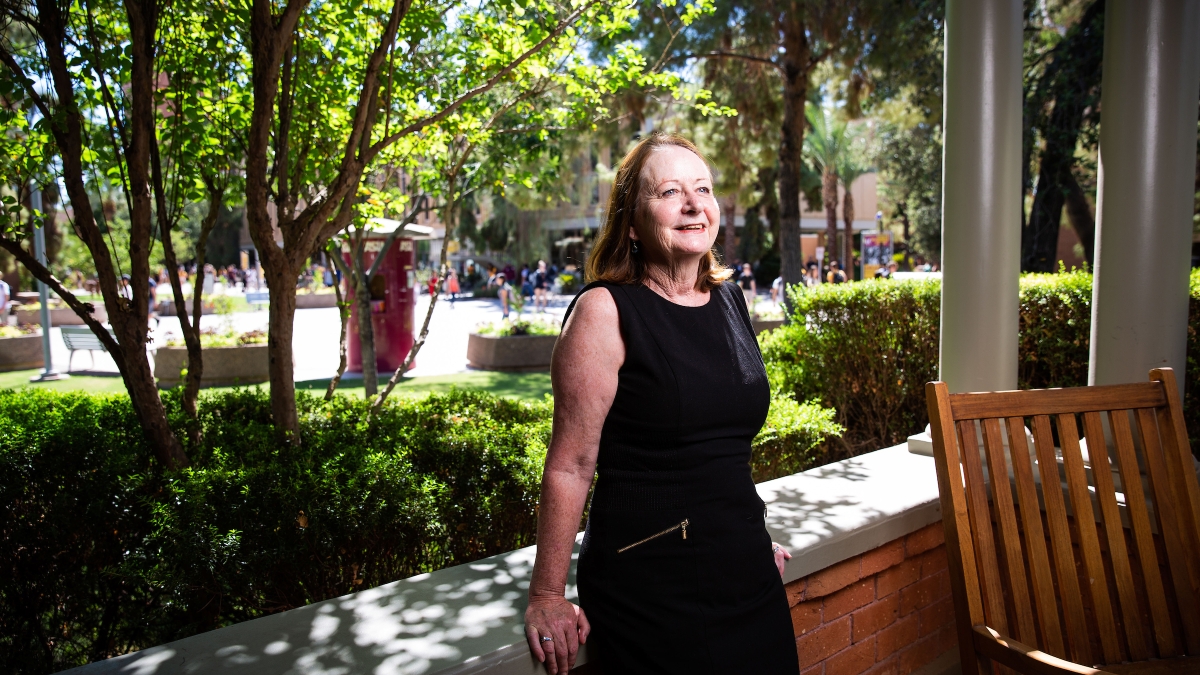Fulbright scholar will spend fall semester studying US Native American children’s education

Maggie Walter has flown more than 8,000 miles to study how Native American children, families and schools in Arizona work to maximize educational outcomes. The 2018 Fulbright Scholar will also bond with fellow researchers and build on her body of work in indigenous-related research.
Walter is an Australian sociologist, author and a palawa (aboriginal) woman descending from the Pairrebenne people of northeastern Tasmania. The pro vice-chancellor of aboriginal research and leadership at the University of Tasmania, Walter will spend the next few months at Arizona State University’s Tempe campus gathering data and stories for a potential new book.
ASU Now spoke to Walter days after she landed in the U.S. to discuss her work and research opportunities.
Question: Tell us about the work you'll be doing this semester.
Answer: My Fulbright program of work is based around two main activities: a comparative quantitative of educational outcomes for aboriginal and Torres Strait Islander children in Australia and Native American and Alaskan Native here in the United States, plus some policy analysis. And network building with indigenous scholars here who work in the area of indigenous education.
So while there will be some heavy-duty statistical work happening, I will also be out and about as much as possible meeting and talking with other scholars.
Q: Why did you specifically want to come to ASU?
A: I was inspired to come to ASU because Professors Bryan Brayboy and Tsianina Lomawaima are based here and I am an admirer of their scholarship in the field. I have much to learn from them. ASU is also located in an area of the U.S. with a relatively large Native American population; I really want to see some of the work happening in schools.
Q: Are there any similarities in the experiences of indigenous peoples in the U.S. and Australia?
A: Yes, there are very strong similarities in how disadvantaged our peoples are and the difficulties of living as an indigenous minority within a nonindigenous majority population. These similarities are very evident in relation to our children’s educational outcomes with both populations recording relatively low levels of educational achievement as measured within current schooling systems. But this is not just a story of underachieving — I am more interested in what indigenous people here in Arizona are doing to improve those outcomes in ways that are culturally safe and culturally strong and engaging with the scholarship around this.
Major differences are found in systems of governance, especially tribal leadership and the relationship of those systems of governance with state and federal authorities.
Q: What are you most excited about with the Fulbright?
A: I am really excited about the opportunity to come and actually live and research here at ASU. This provides a wealth of opportunities to both grow my own scholarship as well as initiate collaborations and connections that are just not achievable through emails, visits or other ways of interacting.
Top photo: Professor Maggie Walter, sociologist and pro vice-chancellor of aboriginal research and leadership at the University of Tasmania, poses for a portrait outside the Virginia G. Piper Center for Creative Writing on the Tempe campus on Sept. 7, 2018. Walter will be at ASU this fall to connect her research on aboriginal people and Native American tribes in the Southwest.
More Local, national and global affairs

Thunderbird at ASU, AUK student appointed as Ukraine’s deputy minister of education and science
Nadiia Kuzmychova, a student in the Master of Leadership and Management (MLM) program at Thunderbird School of Global Management at Arizona State University and the American University…

ASU creates pathways to public service careers for military students
The School of Public Affairs at Arizona State University is making careers in public service easier to access for military students.Next year, the school will start holding graduate courses on site…

Minting community leaders and stellar citizens: ASU’s Public Service Academy approaches 10-year milestone
Airports that are easier to navigate.Health care that is simple to access.Helping underrepresented youth reach college.These are realities that alumni of Arizona State University’s Public Service…